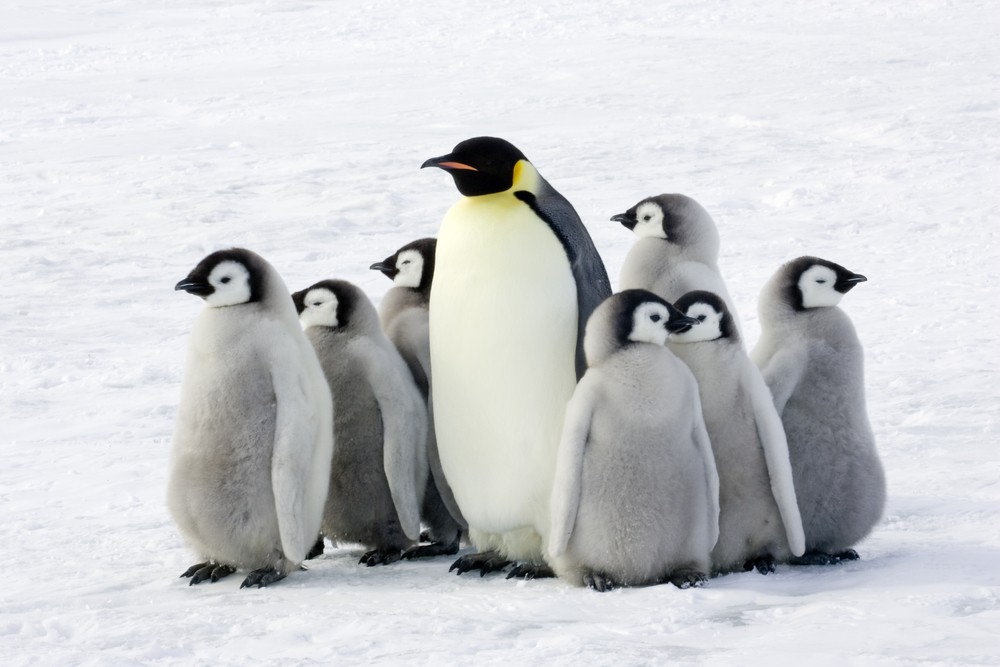Popular Reads
Top Results
Can't find what you're looking for?
View all search resultsPopular Reads
Top Results
Can't find what you're looking for?
View all search resultsBBC series ‘Dynasties’ films endangered animals facing real drama
The five-part BBC Earth documentary series "Dynasties" follows the life of one particular family in five species of animals loved by many but threatened with extinction.
Change text size
Gift Premium Articles
to Anyone
I
t was something never attempted before and riddled with risks but in the end, it brought home both the real-life dramas and dangers faced by wild animals.
Narrated by David Attenborough, the five-part BBC Earth documentary series Dynasties follows the life of one particular family in five species of animals loved by many but threatened with extinction.
They are the Emperor penguins of Antarctica, chimpanzees on the edge of the Sahara in Senegal, West Africa, lions on the savannahs of Kenya’s Masai Mara, painted wolves on the floodplains of the great Zambezi river in Zimbabwe and tigers in the jungles of Bandhavgarh, India.
Taking four years to produce, Dynasties offers viewers the rare opportunity to witness stories of alliances, takeovers, feuds and rivalries that take place in the animal kingdom.
“Making Dynasties was a very rewarding experience. We have taken great care to capture the most intimate and intense stories of these endangered animals, portraying both the immense challenges of leadership in nature and the relentless determination of animals to protect their families,” said Dr Mike Gunton, the series’ award-winning executive producer and creative director, factual and natural history, at BBC Studios.
“These animals are a very powerful reflection of one of the biggest problems facing the natural world right now, which is (lack of) space. A lot of these animals are struggling now because they just don’t have enough space, and that’s why they are endangered,” adds Gunton in Petaling Jaya recently.
When Gunton first pitched the idea for the documentary, English broadcaster and naturalist Attenborough thought Gunton was “mad” because it was just too risky to focus on a single family, and that they could end up with no film.
“But he loved that fact that you just didn’t know what was going to happen. And that we told the story of whatever happened, be it triumph or tragedy, warts and all. We didn’t shy away from the difficult things that happened in their lives, which gave it a genuine reality,” adds Gunton, who was in PJ to talk about the series.
Describing the films as emotionally connecting and insightful, Gunton shares that he learnt a lot about the animals, especially the painted wolves.
“They are kind of the underdogs in Africa, but there is something extraordinarily noble in the way they look after each other and communicate with each other. They have so many things they have to fight against and the way they prevail is utterly heroic.”
Read also: How you can help conserve Indonesia's endangered species
Overall, the key challenge in filming this series was allocating lengthy periods of time to get into the animals’ worlds.
“The challenge with any natural history series is getting the audience to feel like you are in the world of the animals. So we can’t film them from too far away, which takes a lot of skill, and we also needed to get the animals used to us being around.
“And that was particularly the case of this series, because each episode looks at one animal family, so you have to invest a huge amount of time to be able to get inside their world.”
The challenge, he adds, was also in coping with the tough environment that they live in, and most importantly, not missing out the key moments of their lives.
“Because these are a kind of almost political dramas, and if you miss a moment in the story, you can’t ask them to go back and do it again!”
With over 30 years’ of experience in the wildlife film industry, Gunton shares that Dynasties is a project that he is most proud of.
“Partly because it was difficult to do, but also because it feels like a new way of telling a story in natural history and the reality of it. I think we have got the balance of the drama and fragility of nature in a package that will appeal to people as an enjoyable and riveting watch.
“The series really brings home to people the challenges that animals face, because every day in the lives of these animals is a struggle. It’s hard enough having to struggle against your rivals, the weather and internal politics, but they also face extra pressure from humanity.
“That’s not how the animals want, or were meant, to live their lives,” he emphasizes.
This article appeared on The Star newspaper website, which is a member of Asia News Network and a media partner of The Jakarta Post











